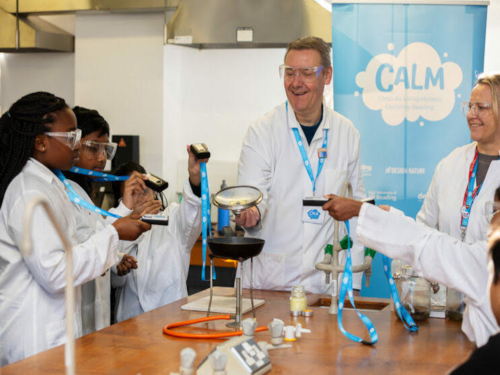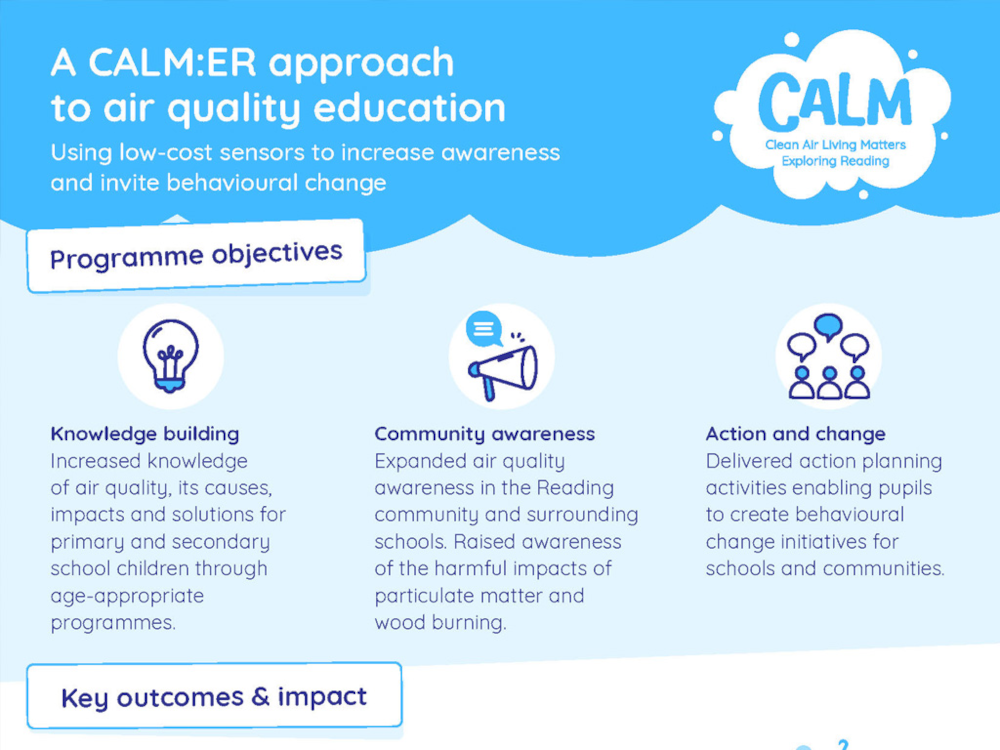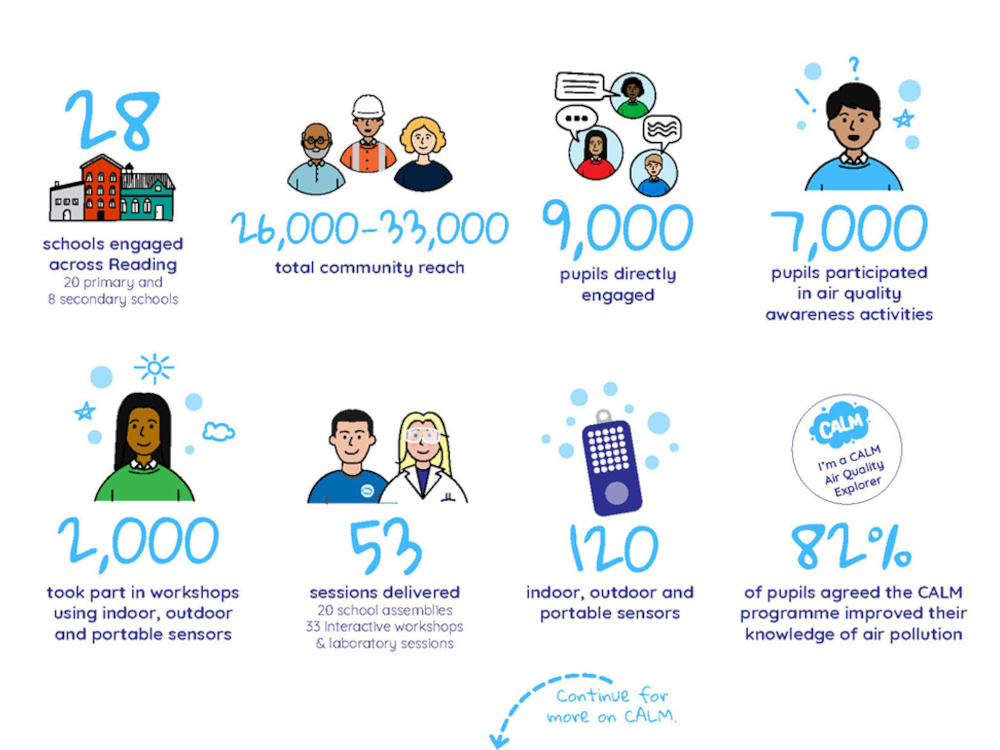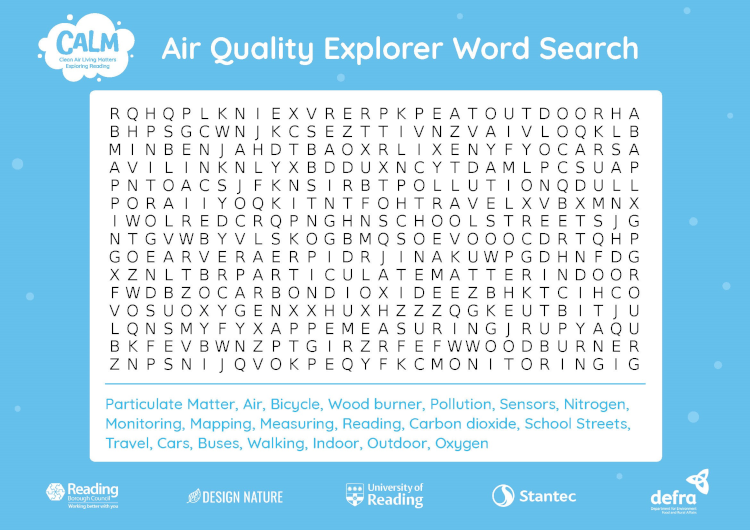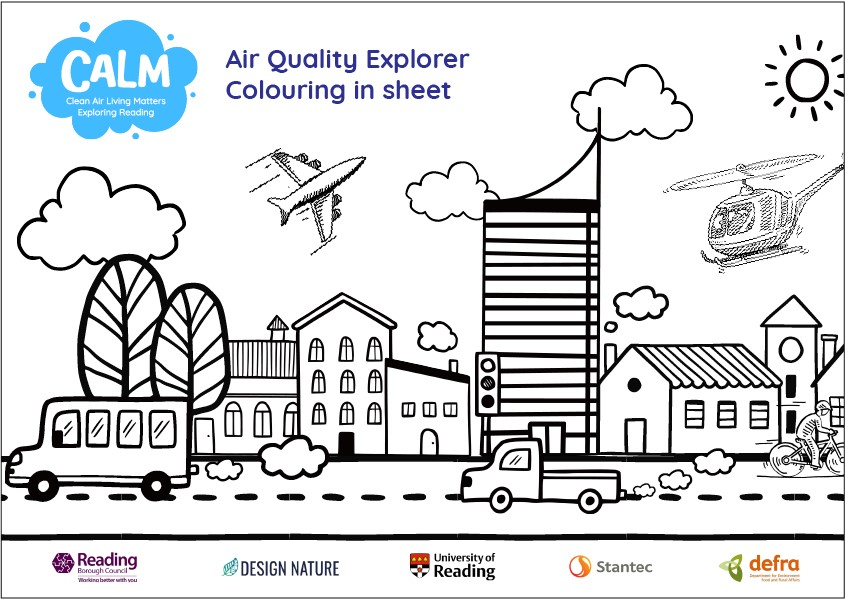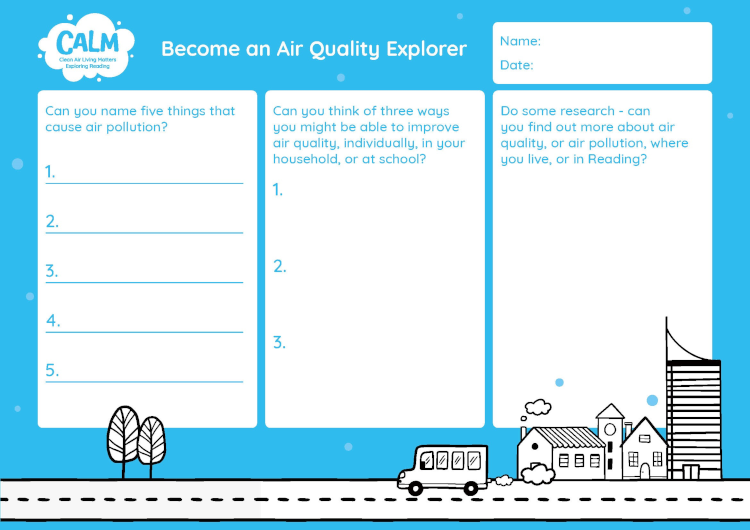Clean Air Living Matters: Exploring Reading with Schools
Ending in June 2025, Reading Borough Council, in collaboration with Design Nature, Stantec and the University of Reading, successfully delivered an exciting CALM – Exploring Reading Air Quality programme to schools across Reading.
Achievements and impact
- Increased knowledge around air quality, its causes, impacts and solutions, with pupils and staff in schools
- Increased awareness of air quality in the wider community and surrounding schools
- Delivered action planning activities that have the potential to impact on poor air quality, surrounding schools, having enabled pupils to create behavioural change initiatives for the school, parents and wider community.
- Delivered school, after-school (Eco Club) and extra-curricular activities
- Joined others and collaborated on key Reading Borough Council initiatives and wider Reading-based community events and activities
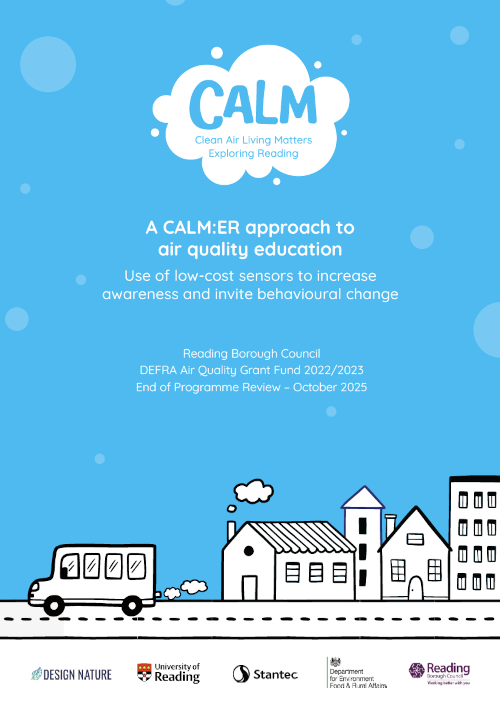
Your guide to air quality education
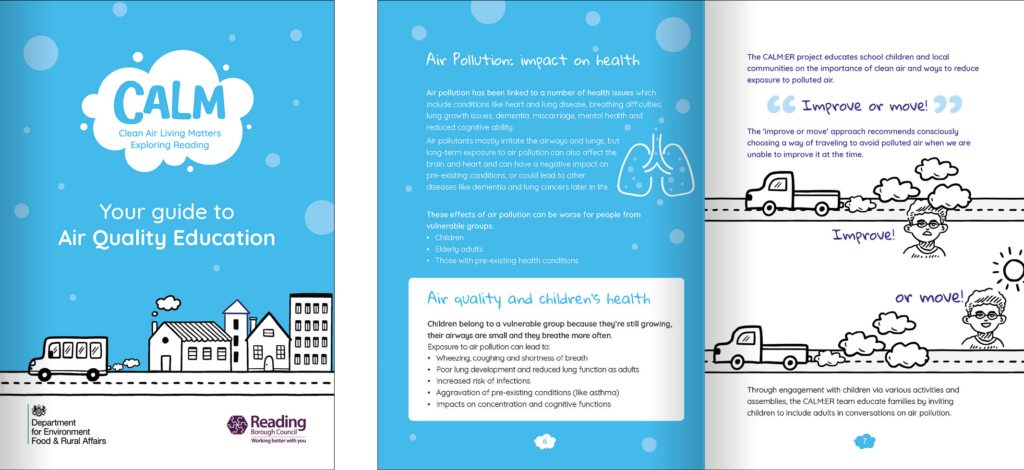
CALM:ER explainer animations
CALM:ER case studies
Geoffrey Field Junior School case study (opens in new window)
Reading School case study (opens in new window)
Civitas Academy case study (opens in new window)
Civitas Academy case study 2 (opens in new window)
Clean Air Day Case Study (opens in new window)
EP Collier case study (opens in new window)
CALM:ER for explorers
CALM:ER for educators
CALM assembly overview (opens in new window)
CALM class overview (opens in new window)
University or Reading – KS2 Curriculum air quality lesson plan
Air Gradient ONE set-up instructions (opens in new window)
Air Gradient Open Air (opens in new window)
ATMO Tube Pro instructions (opens in new window)
Community of practice
CALM:ER is committed to supporting the Reading-based schools who have been so actively engaged in the programme. For more information about the successful CALM:ER programmed please email Ross Jarvis, Principal Air Quality Project Officer – ross.jarvis@reading.gov.uk.



